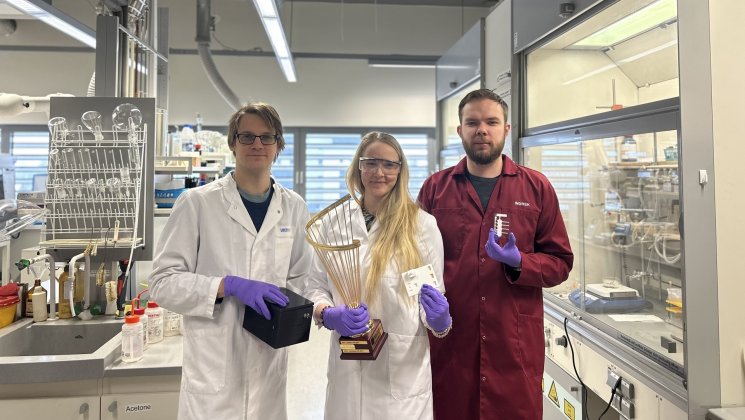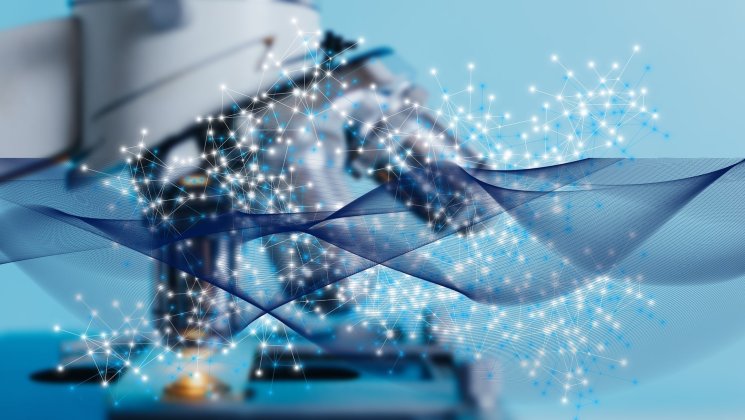-
Faculty of Arts and HumanitiesDean's Office, Faculty of Arts and HumanitiesJakobi 2, r 116-121 51005 Tartu linn, Tartu linn, Tartumaa EST0Institute of History and ArchaeologyJakobi 2 51005 Tartu linn, Tartu linn, Tartumaa EST0Institute of Estonian and General LinguisticsJakobi 2, IV korrus 51005 Tartu linn, Tartu linn, Tartumaa EST0Institute of Philosophy and SemioticsJakobi 2, III korrus, ruumid 302-337 51005 Tartu linn, Tartu linn, Tartumaa EST0Institute of Cultural ResearchÜlikooli 16 51003 Tartu linn, Tartu linn, Tartumaa EST0Institute of Foreign Languages and CulturesLossi 3 51003 Tartu linn, Tartu linn, Tartumaa EST0School of Theology and Religious StudiesÜlikooli 18 50090 Tartu linn, Tartu linn, Tartumaa EST0Viljandi Culture AcademyPosti 1 71004 Viljandi linn, Viljandimaa EST0Professors emeriti, Faculty of Arts and Humanities0Associate Professors emeriti, Faculty of Arts and Humanities0Faculty of Social SciencesDean's Office, Faculty of Social SciencesLossi 36 51003 Tartu linn, Tartu linn, Tartumaa EST0Institute of EducationJakobi 5 51005 Tartu linn, Tartu linn, Tartumaa EST0Johan Skytte Institute of Political StudiesLossi 36, ruum 301 51003 Tartu linn, Tartu linn, Tartumaa EST0School of Economics and Business AdministrationNarva mnt 18 51009 Tartu linn, Tartu linn, Tartumaa EST0Institute of PsychologyNäituse 2 50409 Tartu linn, Tartu linn, Tartumaa EST0School of LawNäituse 20 - 324 50409 Tartu linn, Tartu linn, Tartumaa EST0Institute of Social StudiesLossi 36 51003 Tartu linn, Tartu linn, Tartumaa EST0Narva CollegeRaekoja plats 2 20307 Narva linn, Ida-Virumaa EST0Pärnu CollegeRingi 35 80012 Pärnu linn, Pärnu linn, Pärnumaa EST0Professors emeriti, Faculty of Social Sciences0Associate Professors emeriti, Faculty of Social Sciences0Faculty of MedicineDean's Office, Faculty of MedicineRavila 19 50411 Tartu linn, Tartu linn, Tartumaa ESTInstitute of Biomedicine and Translational MedicineBiomeedikum, Ravila 19 50411 Tartu linn, Tartu linn, Tartumaa ESTInstitute of PharmacyNooruse 1 50411 Tartu linn, Tartu linn, Tartumaa ESTInstitute of DentistryL. Puusepa 1a 50406 Tartu linn, Tartu linn, Tartumaa ESTInstitute of Clinical MedicineL. Puusepa 8 50406 Tartu linn, Tartu linn, Tartumaa ESTInstitute of Family Medicine and Public HealthRavila 19 50411 Tartu linn, Tartu linn, Tartumaa ESTInstitute of Sport Sciences and PhysiotherapyUjula 4 51008 Tartu linn, Tartu linn, Tartumaa ESTProfessors emeriti, Faculty of Medicine0Associate Professors emeriti, Faculty of Medicine0Faculty of Science and TechnologyDean's Office, Faculty of Science and TechnologyVanemuise 46 - 208 51003 Tartu linn, Tartu linn, Tartumaa ESTInstitute of Computer ScienceNarva mnt 18 51009 Tartu linn, Tartu linn, Tartumaa ESTInstitute of GenomicsRiia 23b/2 51010 Tartu linn, Tartu linn, Tartumaa ESTEstonian Marine Institute0Institute of PhysicsInstitute of ChemistryRavila 14a 50411 Tartu linn, Tartu linn, Tartumaa EST0Institute of Mathematics and StatisticsNarva mnt 18 51009 Tartu linn, Tartu linn, Tartumaa EST0Institute of Molecular and Cell BiologyRiia 23, 23b - 134 51010 Tartu linn, Tartu linn, Tartumaa ESTTartu ObservatoryObservatooriumi 1 61602 Tõravere alevik, Nõo vald, Tartumaa EST0Institute of TechnologyNooruse 1 50411 Tartu linn, Tartu linn, Tartumaa ESTInstitute of Ecology and Earth SciencesJ. Liivi tn 2 50409 Tartu linn, Tartu linn, Tartumaa ESTProfessors emeriti, Faculty of Science and Technology0Associate Professors emeriti, Faculty of Science and Technology0Institute of BioengineeringArea of Academic SecretaryHuman Resources OfficeUppsala 6, Lossi 36 51003 Tartu linn, Tartu linn, Tartumaa EST0Area of Head of FinanceFinance Office0Area of Director of AdministrationInformation Technology Office0Administrative OfficeÜlikooli 17 (III korrus) 51005 Tartu linn, Tartu linn, Tartumaa EST0Estates Office0Marketing and Communication OfficeÜlikooli 18, ruumid 102, 104, 209, 210 50090 Tartu linn, Tartu linn, Tartumaa EST0Area of RectorRector's Strategy OfficeInternal Audit OfficeArea of Vice Rector for Academic AffairsOffice of Academic Affairs0University of Tartu Youth AcademyUppsala 10 51003 Tartu linn, Tartu linn, Tartumaa EST0Student Union OfficeÜlikooli 18b 51005 Tartu linn, Tartu linn, Tartumaa EST0Centre for Learning and TeachingArea of Vice Rector for ResearchUniversity of Tartu LibraryW. Struve 1 50091 Tartu linn, Tartu linn, Tartumaa EST0Grant OfficeArea of Vice Rector for DevelopmentCentre for Entrepreneurship and InnovationNarva mnt 18 51009 Tartu linn, Tartu linn, Tartumaa EST0University of Tartu Natural History Museum and Botanical GardenVanemuise 46 51003 Tartu linn, Tartu linn, Tartumaa EST0International Cooperation and Protocol Office0University of Tartu MuseumLossi 25 51003 Tartu linn, Tartu linn, Tartumaa EST0
Intellectual Property Gains Growing Importance in Researchers’ Daily Work

On January 9th, researchers of the Institute of Molecular and Cell Biology participated in a joint seminar with Alina Paas, an Intellectual Property Analyst from the University’s Entrepreneurship Center. The seminar aimed to address challenges scientists face in managing intellectual property and navigating the initial steps of commercialization, providing practical tools to help overcome these obstacles.
Alina Paas is responsible for the protection and commercialization of intellectual property (IP) created at the university. She also provides guidance and training for students and staff. With extensive experience, Alina has advised corporate clients and startups from 19 countries on matters related to intellectual property and contract law.
How to identify intellectual property?
One of the first questions researchers often encounter in their daily work is: "How can I identify intellectual property and potential opportunities for commercialization?" Researchers think differently from IP analysts - they often don’t know whether topics intended for future protection can, for example, be presented at international conferences. The researchers' perspective is often confined to the lab, without extending to the potential application of their invention or product in the market or economy. In addition to sharing, it is also essential to protect the results.
Challenges arise in recognizing IP rights, protecting them, and utilizing existing rights further. Publishing, which is often required as a valid output of a researcher's work, can at some points in the timeline conflict with the possibility of applying for a patent. Rapid publication is not always the best solution when there is potential interest in patenting and bringing the innovation to the market.
Over half of the university's patent applications successfully result in granted patents, and the goal is to maintain this high success rate in the future.
The researchers are not alone on their journey
It’s reassuring to know that researchers are not alone on the journey of identifying potential inventions and protecting them. The Centre for Entrepreneurship and Innovation stands ready to support scientists every step of the way.
Entering the market brings challenges and opportunities such as licensing and commercialization. Companies that provide funding often seek all and exclusive IP rights, while the university aims to retain some of them for broader commercialization opportunities. This creates a bottleneck that requires extensive negotiations. However, a business-oriented mindset is highly encouraged within the university. Researchers have the opportunity to take academic leave to work in industry and receive consultations on establishing spin-off companies.
If a researcher has already published their work, it does not necessarily mean that it can no longer be protected or commercialized. It is encouraged to seek advice of IP strategy from EIK in this case too.
In the coming years, the Entrepreneurship Center plans to enhance training opportunities for employees, offering both online and on-site sessions, while also organizing meetings with patent attorneys to provide expert guidance.
The meeting with the researchers also led to several practical cooperation directions, including:
- Mandatory short web courses to researchers with questions and multiple-choice answers, similar to those in cyber hygiene;
- A concise instructional guideline for each researcher upon signing the employment contract on the topic “Where the IP starts?”;
- Short courses on specific business.
The courses already available are grouped on the website.
The meeting provided valuable opportunities for researchers to ask questions and find answers to various concerns, such as:
- Do I need to sign an intellectual property agreement with a student, and if so, when?
- How can the university secure IP rights from a person who has already left the institution and had no active contract in place?
Who owns intellectual property?
At the University of Tartu, intellectual property created by researchers within their employment belongs to the university. While companies can license this IP, it is often not the most suitable approach for some business models. This is an area where the university could adopt a more flexible stance for commercialization models. However, it is important to note that our operations are guided by existing legislation, which, in its current form, does not always support seamless cooperation between the university and enterprises.
Another sensitive topic discussed was how to protect and manage trade secrets. It is crucial to document trade secrets, as only then can they be properly safeguarded. Researchers were also advised not to rely on invoice-only or contract-less services to sell their expertise, consultations and knowledge. Instead, consider structuring collaborations in a contract and keep a good care of your trade secrets to better protect valuable intellectual property.
Read more similar news






